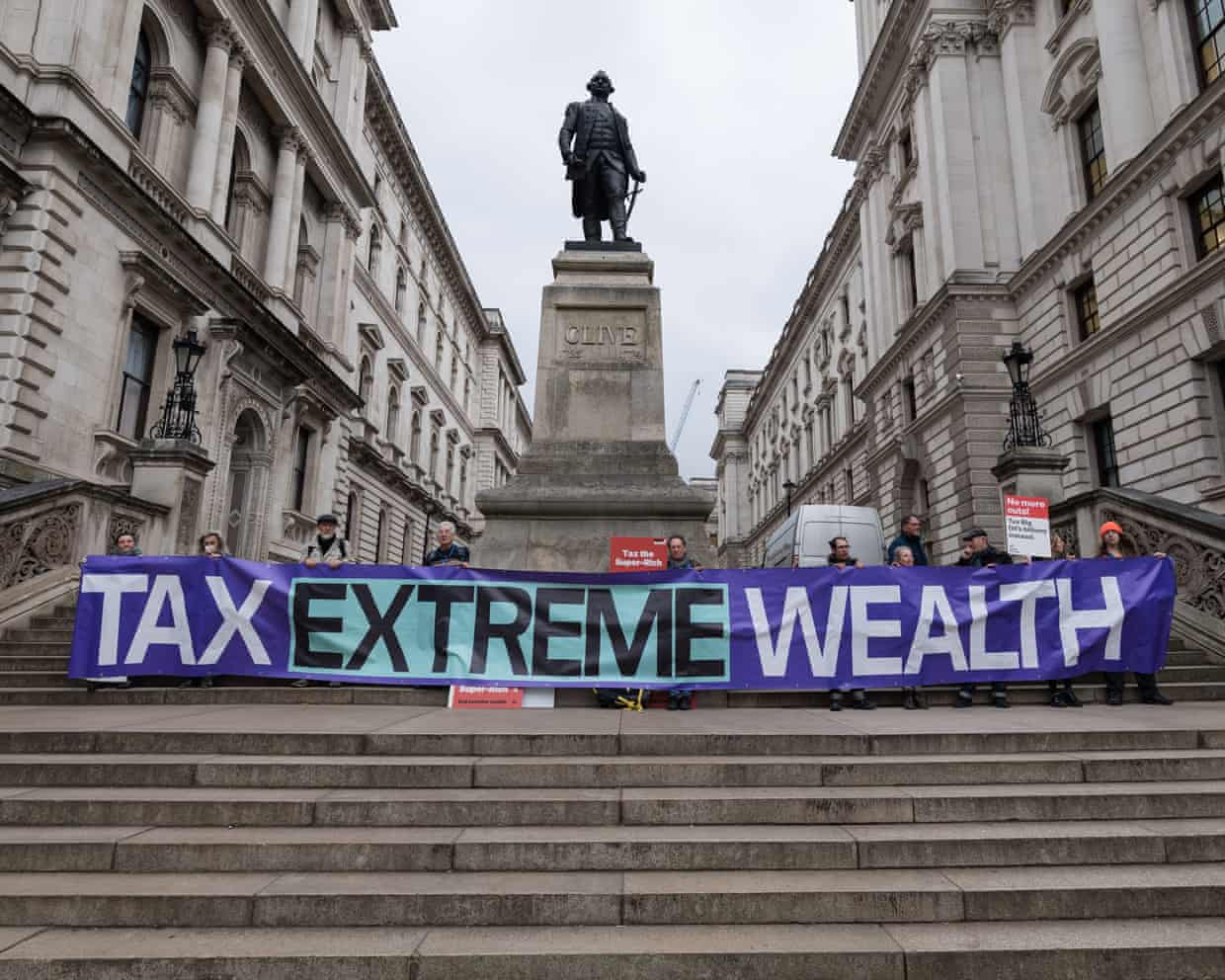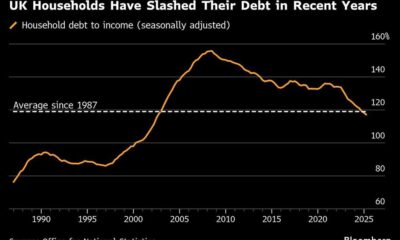Business
Labour Faces £41.2 Billion Budget Challenge, Must Consider Tax Hikes

The Labour Party is grappling with a projected fiscal gap of £41.2 billion ahead of the upcoming autumn budget, as outlined by the National Institute of Economic and Social Research (NIESR). This stark forecast has ignited debate about the necessity of tax increases, with voices across the political spectrum acknowledging that rising taxes may be unavoidable to address mounting economic pressures.
Despite the gloomy outlook, some officials within the UK Treasury express skepticism regarding NIESR’s predictions, citing a history of inconsistent forecasts. For instance, prior to a spring statement, NIESR estimated that Labour would need £57 billion to adhere to its fiscal guidelines; the actual requirement was significantly lower at £4.1 billion. Similarly, NIESR’s earlier projections suggested Chancellor Jeremy Hunt had £97.5 billion available, which later dwindled to £6.5 billion on the day of announcement.
The reality is that significant fiscal challenges loom, particularly with annual debt interest costs exceeding £100 billion and continued demands on public services such as the NHS, pensions, and social welfare. The call for a “brutally honest conversation” regarding taxation has even emerged from within the right, with Robert Colvile, director of the Centre for Policy Studies, suggesting potential reforms that would be politically risky for the Conservative Party.
Interestingly, figures from the right, including Tom Clougherty of the Institute of Economic Affairs (IEA), have proposed tax increases as a viable solution. One suggestion involves eliminating value-added tax (VAT) exemptions, which could potentially double revenue intake. The Institute for Fiscal Studies (IFS) supports this idea, recommending that the funds raised be used to offset the increased costs for lower-income households.
The ongoing discussion around taxation reflects a growing acknowledgment of the wealth disparities in the UK. According to a report from the Equality Trust, the wealthiest 50 families in the UK hold more wealth than the bottom half of the population combined. This concentration of wealth, exacerbated by policies like quantitative easing over the past decade, has led to calls for a more equitable tax structure.
A proposal from the Tax Justice Network advocates for a 2% levy on wealth exceeding £10 million, which could yield an estimated £24 billion annually. This initiative enjoys broad public support, with a recent survey indicating that 75% of respondents favour such a tax. However, concerns about the potential impact of wealth taxes on investment and capital flight persist.
“Wealth is now grotesquely agglomerated among very, very few,”
warns Dan Neidle of Tax Policy Associates, who highlights that a large portion of revenue from a wealth tax would come from a small number of individuals. This concentration renders the tax vulnerable to manipulation by those capable of altering their financial circumstances to evade taxation.
While some members of Labour express reservations about wealth taxes, others are exploring various strategies to address the urgent fiscal needs of the country. Ideas such as a one-off wealth tax to support national defence commitments are gaining traction, potentially allowing Labour to position itself as both socially responsible and patriotic.
The ongoing discourse surrounding taxation indicates that the Labour Party must navigate a complex political landscape. With significant budgetary challenges ahead, the party must consider a range of options to ensure sustainable funding for essential public services. As the debate continues, the implications of these discussions will resonate well beyond political circles, affecting millions across the UK.
Labour’s proposal to hire an additional 5,000 HMRC staff underscores its commitment to tackling tax evasion and ensuring that all income sources are appropriately taxed. The party’s ability to craft a balanced approach that addresses the needs of the public while also appealing to wealthier individuals will be crucial as it prepares for the challenges ahead.
In the face of pressing economic demands, the time for radical thinking is upon Labour. The public expects a comprehensive strategy that addresses both immediate fiscal needs and the long-term sustainability of the nation’s economy.
-

 World3 months ago
World3 months agoScientists Unearth Ancient Antarctic Ice to Unlock Climate Secrets
-

 Entertainment3 months ago
Entertainment3 months agoTrump and McCormick to Announce $70 Billion Energy Investments
-

 Lifestyle3 months ago
Lifestyle3 months agoTransLink Launches Food Truck Program to Boost Revenue in Vancouver
-

 Science3 months ago
Science3 months agoFour Astronauts Return to Earth After International Space Station Mission
-

 Technology2 months ago
Technology2 months agoApple Notes Enhances Functionality with Markdown Support in macOS 26
-

 Top Stories1 week ago
Top Stories1 week agoUrgent Update: Fatal Crash on Highway 99 Claims Life of Pitt Meadows Man
-

 Sports3 months ago
Sports3 months agoSearch Underway for Missing Hunter Amid Hokkaido Bear Emergency
-

 Politics2 months ago
Politics2 months agoUkrainian Tennis Star Elina Svitolina Faces Death Threats Online
-

 Technology3 months ago
Technology3 months agoFrosthaven Launches Early Access on July 31, 2025
-

 Politics3 months ago
Politics3 months agoCarney Engages First Nations Leaders at Development Law Summit
-

 Entertainment3 months ago
Entertainment3 months agoCalgary Theatre Troupe Revives Magic at Winnipeg Fringe Festival
-

 Politics1 week ago
Politics1 week agoShutdown Reflects Democratic Struggles Amid Economic Concerns





















